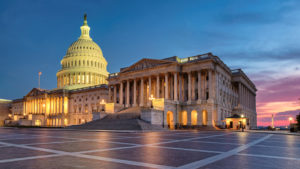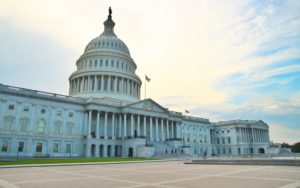Using VSLs in State and Local COVID-19 Policy
VSLs can serve as a foundational tool for policymakers at all levels of governance amid the COVID-19 pandemic.
Analyzing COVID-19 Policymaking
Experts assess the use of VSLs and benefit-cost analysis for pandemic decision-making.
Regulatory Intervention Beyond Fixing Market Failures
Although regulation offers economic solutions, it can also safeguard the public interest and individual rights.
The Other CARES Act Funding Accountability Story
Agencies must ensure proper use of funds, but complex compliance rules may stunt noble policy goals.
Regulating Compliance Robots
Sometimes tax compliance robots follow the law, but sometimes they break it.
Dissing the Supreme Court
President Trump’s reactions to Supreme Court decisions threaten the legitimacy of the nation’s judicial system.
Regulatory Solutions for Personalized Pricing
Scholars consider methods to regulate the practice of setting individualized prices based on personal data.
COVID-19 and Uncertainties in the Value Per Statistical Life
Uncertainties in value per statistical life estimates impact the extent to which COVID-19 policies yield net benefits.
Toward a “Unitary Executive” Vision of Article II?
The Supreme Court relied on misleading arguments and revisionist history to strike down the CFPB’s structure.
Regulation, Delegation, and the Affordable Care Act
Empirical study of the ACA’s implementation provides insight into the delegation of policymaking authority.
Abortion Restrictions After June Medical Services
A concurring opinion leaves the standard for determining the constitutionality of abortion restrictions in doubt.
Rethinking Benefit-Cost Analysis for COVID-19
The normative foundations of the value of statistical life render it an insufficient tool to analyze pandemic-related policies.












